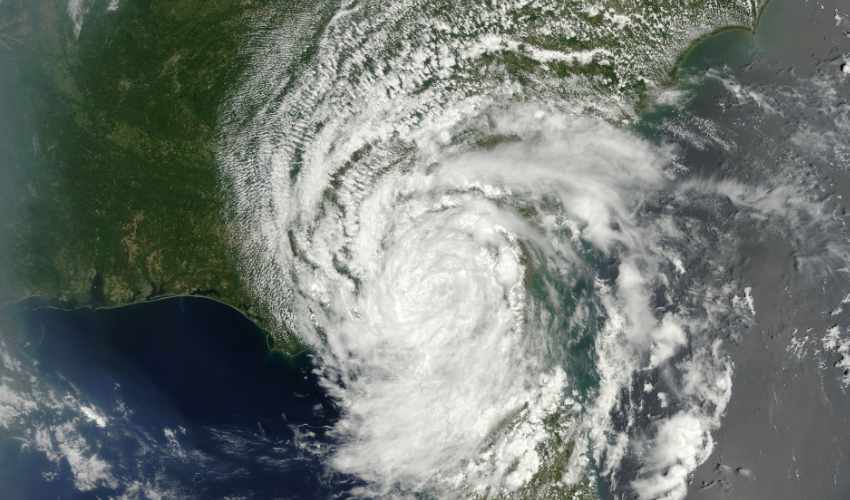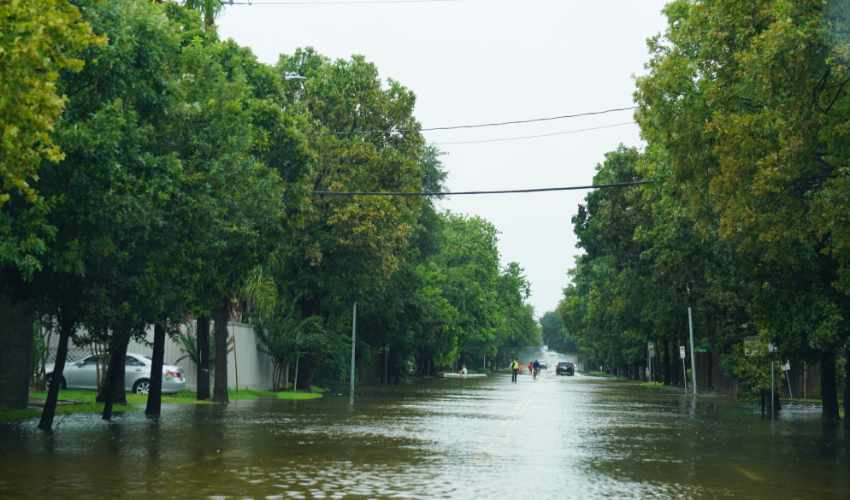Reflections on catastrophe

From a general perspective, the widely held opinion of many observers is that catastrophe events are becoming more frequent and severe. Climate change is the one single factor believed most to blame. Here we’ll consider and expand on that suggestion, look at the experience of the catastrophe teams at Chubb Overseas General (COG) and explore some of today’s major discussion points in catastrophe insurance.
COG operates a very diverse book of business and is discriminating in its risk appetite. For that reason, the exposure that Chubb has in one country, region or area may be very different to that which it has in another. A hailstorm on Australia’s east coast will generate a very different cohort of losses to an earthquake in Korea or a flood in Chile. Additionally, catastrophes are generally unpredictable. That all being considered, we have to be cautious when presented with statistics quoting average claim values or similar statistical measures because so much depends on the underlying risk portfolio. Despite this, there can be great value in looking at trend and experience as signposts to the future.
The National Oceanic and Atmospheric Administration (aka the National Hurricane Centre) has named storms since the early 1950s, but it is perhaps no coincidence that 2020 saw 30 named events, a record for a single year. The previous record had been set in 2005 (28 storms) and prior to that, the record was 19 (1995, 2010, 2011, 2012). One can find similar statistics for bushfires in Australia and other seasonal catastrophe scenarios.

Looking broadly at in excess of 11,000 catastrophe losses or 43 catastrophe events registered by COG in 2020, many points stand out. First is an increase in the number of events that are reaching COG’s catastrophe threshold on an annual basis. Even considering a period of extremely recent history, the 43 events in 2020 compare to an average of 25 for the three preceding years and 18 for the five years before that.
Second, through our claims experience, we see that it is vital to contemplate the risk from natural perils in its widest sense, even in areas which may traditionally have been considered benign. To illustrate the point, we can choose between wildfires in Sweden in 2018, cyclone Idai which hit Mozambique in 2019, or to the present-day, extreme weather which plunged much of Texas into a prolonged freeze in 2021. None of these events could be considered normal for the territories in which they occurred, certainly at the severity witnessed. We will continue to see unusual things happening in unexpected places.
Place and location themselves raise an interest point if we ask whether the true issue at hand is nature impinging on humanity or humanity moving further into nature? According to the World Population Review, Mumbai’s population grew seven-fold between 1950 and 2020. For Sydney, much of which was impacted by the 2019/2020 bushfires, the increase is ten-fold with the population now estimated at 5 million. Population increase pushes urban boundaries further into nature’s path and brings with it all the dangers which previously appeared remote. We can apply this analysis equally to development on floodplains and the use of land reclaimed from the sea.

We also see that understanding the risk to a business involves more than understanding the risk to the property or location from which that business operates. As fire, hurricane and flood events increase in both frequency and severity, they threaten businesses not just through physical damage to insured property but by denying access to key locations and by damaging infrastructure and the properties of employees, customers and suppliers. In a world where a cell phone draws components from over 200 suppliers, the focus on insurance risk must be global.
While not considered catastrophes in the natural sense of the word, Chubb increasingly receives losses arising from political violence or geopolitical perils. A question arises as to whether this is really a new phenomenon, or simply increased recognition of issues that have existed for centuries? In truth, neither is entirely right or wrong. However, the world of today is characterised by social media, 24-hour news and what we might call total connectedness for anyone who wishes to share their opinion on an issue. It therefore follows that a voice can become a movement almost overnight and subsequently develop into widespread protest and disorder much more quickly than appeared to be possible before.
The riots in Chile in 2019 demonstrated exactly the issues at hand. What began as a voice protesting against a small rise in fares charged for public transport morphed into widespread public protest which forced the Chilean Government to make swift commitments to address the widening gap between the country’s richest and poorest demographics. As is frequently the case, with legitimate protest came unlawful disobedience, in the form of malicious damage but also via looting. The umbrella of legitimacy that comes with law-abiding protest is commonly seized by the opportunist. This serves to highlight the need for the insurance buyer to be discerning in the purchase of their coverage, not only to guarantee that they benefit from the appropriate breadth of peril-based coverage, but also to ensure that the policies dovetail together without leaving gaps or uncertainties.
Kevin Smith
VP, Claims COG
April 2021
This content is brought to you by Chubb Insurance New Zealand Limited (“Chubb”) as a convenience to readers and is not intended to constitute advice (professional, financial or otherwise) or recommendations upon which a reader may rely. Any references to insurance cover are general in nature only and may not suit your particular circumstances. Chubb does not take into account your personal objectives, financial situation or needs and any insurance cover referred to is subject to the terms, conditions and exclusions set out in the relevant policy wording. Please obtain and read carefully the relevant insurance policy before deciding to acquire any insurance product. A policy wording can be obtained at www.chubb.com/nz-en through your broker or by contacting any of the Chubb offices. Chubb makes no warranty or guarantee about the accuracy, completeness, or adequacy of the content. Readers relying on any content do so at their own risk. It is the responsibility of the reader to evaluate the quality and accuracy of the content. Reference in this content (if any) to any specific commercial product, process, or service, and links from this content to other third party websites, do not constitute or imply an endorsement or recommendation by Chubb and shall not be used for advertising or service/product endorsement purposes. ©2020 Chubb Insurance New Zealand Limited Company No. 104656 FSP No. 35924. Chubb®, its logos, and Chubb.Insured.SM are protected trademarks of Chubb.

Interested in this Chubb policy?
Have a question or need more information? Contact us to find out how we can help you get covered against potential risks